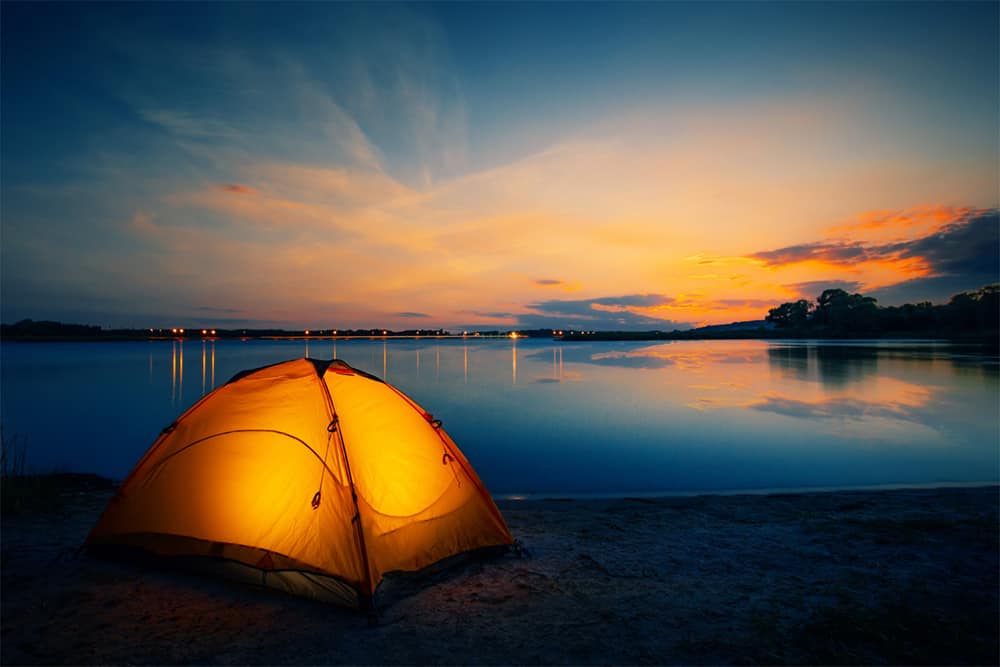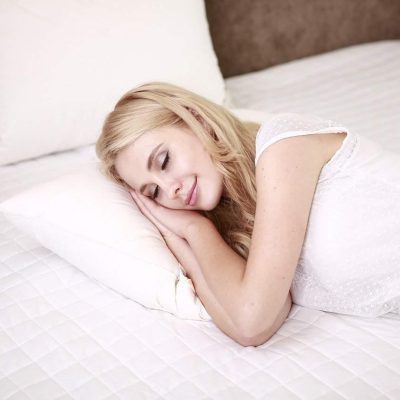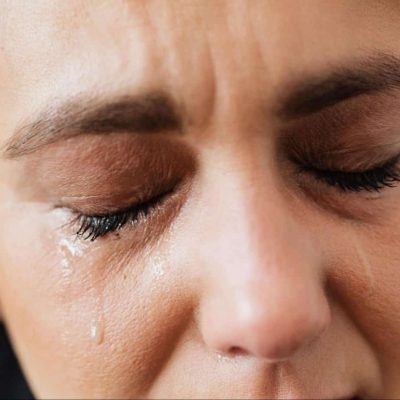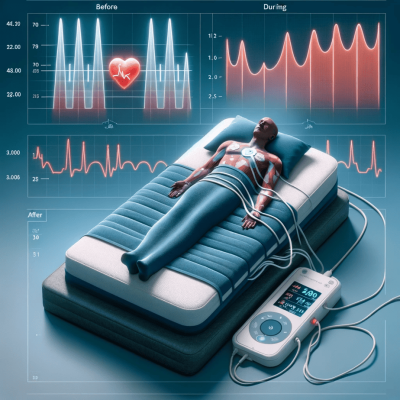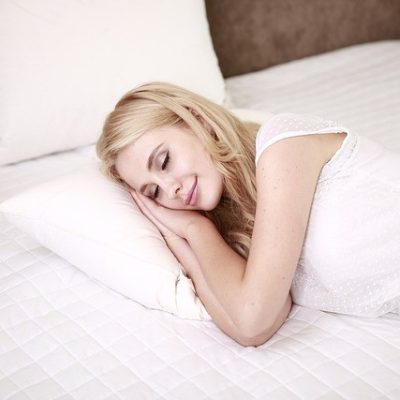Studies have been suggested that sleeping outdoor is excellent for regulating your natural sleep cycle. When you’re camping, you actually following the sun’s schedule. This, in turn, syncs the timing of your sleep with your natural melatonin level so it’s easier to fall asleep and wake up feeling more relaxed.
Most sleep apnea patients worry about having to bring along their CPAP device while camping. Some also choose to skip their CPAP therapy while others think that their camping days are over.
Well, there is no need to skip neither camping days nor the sleep apnea therapy as there are multiple solutions that make it achievable to manage your sleep apnea anywhere.
This guide has been designed to make CPAP camping straightforward and provide comprehensive information that you find helpful relating to:
- The challenges for CPAP users while camping
- Ultimate solutions
- Using Travel Size CPAP machine
- Using Lithium-ion battery
- Using Car battery
- Using CPAP battery for camping
- Using a solar power charger
- Important tips from experts
- Frequently asked questions regarding camping with CPAP
Table of Contents
ToggleThe Challenge: Carrying Your CPAP Device
Most CPAP machines are heavy. For days of hiking, if you add them to your backpack, their extra weight makes them unbearable to carry. Additionally, you also need to bring your CPAP supplies, including tubing, mask, and more. Furthermore, you have to figure out how to make everything fit in your backpack.

The Solution: Consider Carrying Travel CPAP Machine
Travel size CPAP machines are portable CPAP for camping that can easily fit into your backpack and not add too much extra weight. This will make it extra portable, letting you pack more than you would if you used a home CPAP unit.
Pros of Travel CPAP machine
- It can be both used for home and camping.
- It has extra features compared to the older home CPAP units.
- It can be used in a car or plane.
Cons of Travel CPAP machine
- It has no built-in battery.
The Challenge: How to Power CPAP Machine While Camping?
When it comes to managing your CPAP while camping typically the first thing that comes in mind is the requirement of power source in order to run CPAP machine.
The Solution: Powering CPAP On-Grid/ Off-Grid
Powering your CPAP device is a major challenge, and you have two options.
- Only camp where there is an electric plug-in
- Powering your CPAP off the grid
Both options have certain benefits and drawbacks. Lets us explain everything in detail.
Visiting Campsite with Electric outlet
Campsites with an electricity supply have the advantage of all the electricity you need for your therapy and there is no need to buy a travel CPAP machine. Most of the campgrounds and state parks have electricity throughout supply. It’s a huge advantage for CPAP users to carry their CPAP therapy while camping.
Pros of Powered Campsites
- They are usually clean and maintained.
- They have other facilities like bathrooms, showers, and Wifi.
Cons of Powered Campsites
- You won’t actually be far away from civilization and noise.
- You may miss the actual joy of camping in a natural environment with beautiful sceneries
Powering Your CPAP off the Grid
The purpose of camping is to get off the grid and isolate. In this case, here are three options to power your CPAP off the grid:
- Using Lithium-ion Batteries
- Using Car battery
- Using CPAP battery
- Using a Solar Power Charger
1. Using Lithium-Ion Batteries
 Batteries will allow you to go far away from civilization. Most of the batteries are suitable for one-two nights of power without the need for a recharge. Commonly, when lithium-ion batteries are fully charged, they can power your CPAP machine for up to two nights. By having two to three batteries, you can extend the time you’re away from home.
Batteries will allow you to go far away from civilization. Most of the batteries are suitable for one-two nights of power without the need for a recharge. Commonly, when lithium-ion batteries are fully charged, they can power your CPAP machine for up to two nights. By having two to three batteries, you can extend the time you’re away from home.
Pros of Using Lithium-ion Batteries
- Batteries make it achievable to go anywhere.
- Most batteries are Federal Aviation Association (FAA) approved for in-flight use and work well with popular CPAP.
Cons of Using Lithium-ion Batteries
- Lithium-ion batteries cannot handle extreme heat and can cause the accident.
- Quite Expensive
- Depending on your machine and its settings, you could run out of power faster than expected, especially if you need to use a power inverter.
2. Using A Car battery
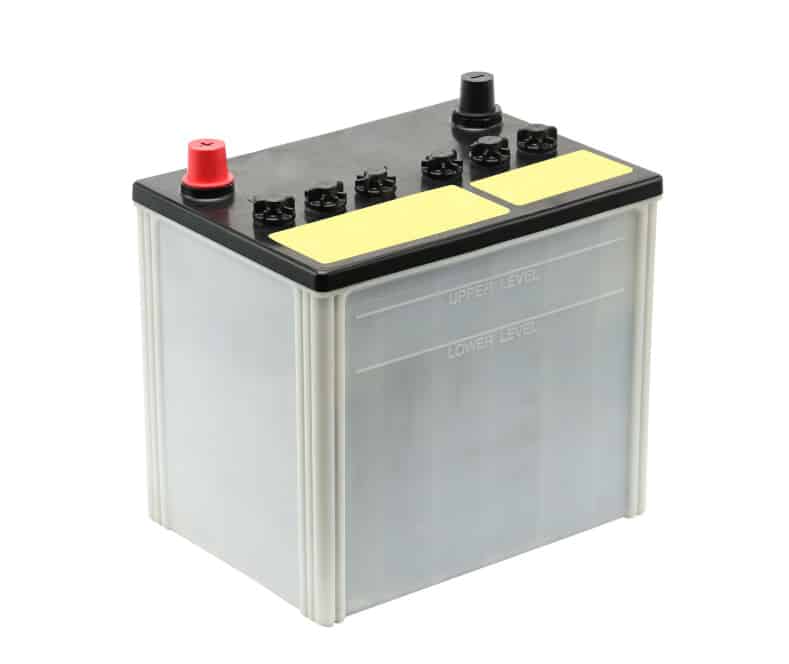 You can also use car batteries to power your CPAP device. Car batteries are lead-acid batteries that have more power capacities compared to lithium-ion batteries and provide power for days.
You can also use car batteries to power your CPAP device. Car batteries are lead-acid batteries that have more power capacities compared to lithium-ion batteries and provide power for days.
If you chose a car battery to power your CPAP device, then you’ll need to one of two things:
1. Use a Direct Current Adapter Cable
A DC Adapter cable utilizes alligator clips to connect to the positive and negative terminal of your car battery. This in turn provides power to a cigarette lighter plug. From there, you can charge your CPAP machine by plugging-in your machine’s DC cable into the cigarette lighter plug. Some car batteries have the in-built cigarette lighter plug itself, so there is no need for an adapter.
2. Use an Inverter
A car battery provides Direct Current (DC) power. An inverter converts this DC power into Alternating Current (AC) power so your CPAP machine can use it to get charged. Your car battery should have alligator clips to make your inverter work. In this way, you would plug-in as you would at home.
Pros of Using a Car battery
- Has more power capacity
- Provides power for days
Cons of Using a Car battery
- Heavier than lithium-ion batteries.
- Not Federal Aviation Association (FAA) approved as lead-acid batteries contain toxic chemicals that can be unstable thus not allowed to be used on a flight or placed in checked baggage.
- Risk of draining the car battery power, if you’re traveling by it.
3. Using A CPAP Battery Pack
CPAP battery pack is the perfect solution for camping with CPAP where electric power isn’t available.
Pros
- Easy to carry in your backpack
- Specially designed for use while flying as it’s FAA approved.
- Provides portable power and can be used anywhere.
- Lighter and less expensive
Cons
There is no drawback of using a CPAP battery pack but keep in mind that no battery is truly universal. You have to take a look at what power needs your particular CPAP machine has. Many CPAP batteries have DC inputs for specific CPAP machines but if there is no DC input then you’ve to use an inverter.
4. Using A Solar Power Charger
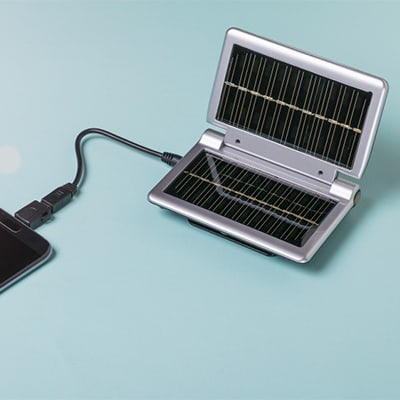 You can also use a solar panel charger to charge your batteries. You can connect the solar panel to the battery during the day in direct sunlight and be confident that your CPAP machine’s batteries will be fully charged before you go to sleep at night.
You can also use a solar panel charger to charge your batteries. You can connect the solar panel to the battery during the day in direct sunlight and be confident that your CPAP machine’s batteries will be fully charged before you go to sleep at night.
Pros
- Lightweight and foldable
- Portable
- Can fully charge a battery in 6 to 12 hours
Cons
- May overcharge your battery if your solar charger has no charge controller.
Final Tips from WellAwareSystem Experts
- Our expert team recommends you to must bring your CPAP machine while camping. Skipping CPAP therapy, even for a night or two can lead you to suffer ill effects.
- Travel CPAP machine and travel CPAP battery pack is the perfect combination for camping. It’s safe and FAA-approved.
- Find those batteries that are specifically designed for your CPAP machine. It helps you to avoid the use of inverters as it drains the energy twice as fast as it would if you didn’t use one.
- Just be sure to accurately calculate the running time of each battery and how long you’ll be sleeping.
- If you’re unable to buy multiple CPAP battery packs, we recommend you use solar panel chargers to charge your CPAP battery.
- We don’t recommend lithium-ion batteries and car batteries to power your CPAP as it could be unstable and dangerous at high temperatures.
- Take care of your machine hygiene specifically when using a humidifier and remember to dry the things thoroughly before use. Keep an extra filter since your filter will be likely to pick up far more allergens and dust particles outside.
- Your health is our priority. Our expert team recommends you consult your healthcare provider so he may advise you of any specific precautions according to your disease severity.
Frequently Asked Questions
Does Humidifier Reduce My Therapy Run Time?
Yes, a humidifier drains your battery power at a much faster rate specifically when you’re using a battery. The humidifier is a part of a CPAP machine that humidifies the air that a CPAP user inhales. Without humidification, the air would be extremely dry that can lead to sore throat, nose, and mouth.
How Long Will My CPAP Battery Last?
- Running time of a travel CPAP battery:
A fully charged travel CPAP battery will only get you a night, or at most two nights, of use. This run time will further decrease if you plan on using the humidifier too. Thus, multiple travel-Cpap battery packs are recommended.
- Running Time of a Lithium-Ion Battery:
A fully charged lithium-ion battery can power a CPAP machine for up to two nights.
- Running Time of a Car Battery:
Car batteries are lead-acid deep cycle batteries that have much larger power capacities than lithium-ion batteries. Car batteries can power a CPAP machine for many days.
Why Lithium-Ion And Car Batteries Are Not Recommended To Power A CPAP Machine?
Although Lithium-ion batteries are FAA approved but they can’t handle extreme heat and can cause an accident. Car batteries contain toxic chemicals that can be unstable. Moreover, these are not FAA-approved to be used for flight.
Which Factors Determine The Length Of My CPAP Running Time?
The performance of your CPAP battery can vary based on:
- Type of machine
- Heated humidifier
- Altitude
- Pressure settings
Can A Travel CPAP Machine Be Used As Your Regular Machine?
Yes, a travel CPAP machine can also be used for everyday therapy at home. However, please keep in mind:
- Travel size CPAP machine emits a light sound while everyday CPAP machine does not make any sound.
- Some travel-size CPAP machines do not have a humidifier water chamber. This may not be ideal for everyday therapy, specifically in winter or dryer climates.
- Because of the small size, the components of the travel CPAP machine will need to work harder than a regular CPAP machine.
Quick Check List
Make sure you have the following arranged before camping with a CPAP:
- Power Supply (preferably multiple travel CPAP battery pack).
- The contact number of the CPAP machine manufacturer
- Travel documents if you’re traveling overseas i.e., CPAP airline letter
- Travel CPAP accessories (such as CPAP sanitary wipes and extra filters).
Happy Camping!

